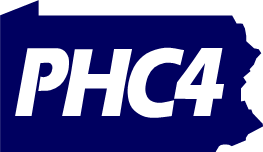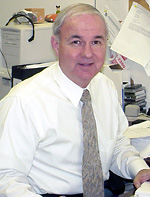Not many professions take such a physical toll on a person as law enforcement. With the rotating shift work, the extended time sitting in patrol cars versus the bursts of adrenaline and energy involved in chase and apprehension, it’s no wonder that law enforcement officers are at a higher risk than the general population for heart disease, diabetes, high blood pressure and other health problems.* These risk factors often translate into high costs to provide health insurance for local law enforcement groups.
But in Philadelphia, the Law Enforcement Health Benefits, Inc. (LEHB) helps keep its members healthy and medical expenses down. Under the helm of administrator Tom Lamb, the LEHB is an exceptional entity that administers health insurance to all Philadelphia law enforcement officers and their families, about 10,000 contracts that cover more than 23,000 people. Through its distinctive process, and with the help of Pennsylvania Health Care Cost Containment Council (PHC4) data, LEHB is able to keep officer co-pays as low as only $15 for an office visit to a family doctor and $25 for an office visit to a specialist.
“The men and women of Philadelphia law enforcement are the most dedicated and hard-working people I know,” says Lamb. “While they fulfill their duty, LEHB works hard behind the scenes to help them stay healthy and keep as much of their hard-earned paycheck as possible by keeping their medical expenses to a minimum. Much of the cost-saving education and programs just wouldn’t be possible without PHC4 data.”
LEHB takes customer service very seriously. In an office with 11 full-time and three part-time employees, Tom’s emphasis is on personal contact. Members that call in with questions deal with the same employee each time they call, have access to calling the fund’s in-house nurse, and are encouraged to participate in a variety of outreach programs. Additionally, Lamb makes regular rounds at the courthouse to make sure his members are taking advantage of their health care benefits such as preventative and wellness measures.
Tom regularly uses the free PHC4 data and reports, such as the Diabetes Report and the Cardiac Surgery Report, to start conversations with members about how to stay healthy and manage any on-going health issues. He also uses the Hospital Performance Reports to educate his members on the costs of the services they use. These and other reports and databases are publicly available on the agency web site (www.PHC4.org).
Since the LEHB is self-insured, Tom makes sure the members all take ownership in making decisions about where they seek health care services. When all 10,000 members shop around for the best price on an MRI, lab test, or elective surgical procedure, it results in plenty of savings. LEHB has recovered more than $60 million in improperly paid claims — errant claims that were paid as the result of administrative error, fraud, etc. Additionally, LEHB’s wellness programs and disease management programs have resulted in smarter and more efficient health care choices over the years.
The success of Law Enforcement Health Benefits, Inc. can be attributed to both the outstanding leadership of its administrator as well as its reliance on local data to educate members about their health care purchasing decisions. In moving forward with future reports, PHC4 values its partnership with LEHB and Tom Lamb in distributing PHC4’s beneficial, free information.
*Centers for Disease Control and Prevention, “Police Stress,” June 2008; University of Buffalo, Study with Grant from National Institute of Occupational Safety and Health, September 2008. Both studies show police at higher risk of health problems and subject to more costly medical services than the general public.
Return to the Case Studies page: VIEW ALL CASE STUDIES


